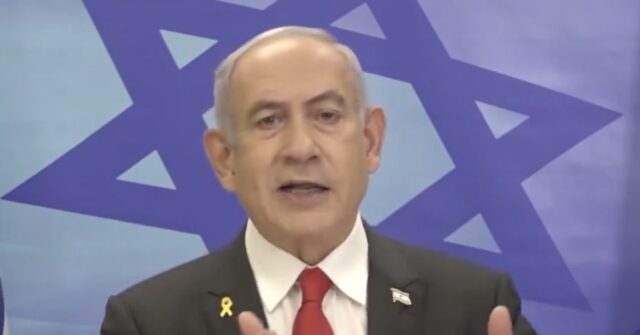On Thursday evening, Israeli Prime Minister Benjamin Netanyahu addressed the nation following the confirmation that Israeli Defense Forces (IDF) troops had killed Hamas leader Yahya Sinwar. Netanyahu highlighted that Sinwar’s death presented a unique opportunity to negotiate the release of the 101 remaining Israeli hostages held by Hamas. He emphasized that this moment could serve as leverage to secure their freedom, asserting that the elimination of Sinwar marked a pivotal development in Israel’s ongoing conflict with Hamas and a step towards peace in the region.
During his address, Netanyahu directed pointed remarks towards the Palestinian community, condemning Sinwar for the devastation he caused in their lives. He asserted that Sinwar, who considered himself a bold leader, ultimately met his demise while attempting to escape. Netanyahu claimed that Hamas would no longer govern Gaza, suggesting a shift in power dynamics within the region. He urged any remaining Hamas militants to recognize their leaders’ retreat and urged them to lay down their arms in exchange for their safety, indicating a broader call for peace and resolution.
President Isaac Herzog echoed Netanyahu’s sentiments by praising the efforts of the IDF, Shin Bet, and other security services for successfully eliminating Sinwar, whom he labeled as an “arch-terrorist.” Herzog characterized Sinwar as the mastermind behind the deadly October 7th attack that resulted in the loss of many innocent lives. He stressed the urgency of action to bring back the hostages who are suffering under Hamas captivity in Gaza and reiterated Israel’s commitment to pursuing justice against those responsible for acts of terror.
Israeli Defense Minister Yoav Gallant firmly supported the elimination of Sinwar, labeling him a “vile murderer and terrorist.” Gallant pointed out that Sinwar’s death is part of a series of decisive actions taken against terrorists who threaten Israeli citizens. He painted a dramatic picture of Sinwar’s demise, contrasting it with the bravado he displayed in life, stating that he ultimately died “beaten, persecuted, and on the run.” Gallant’s remarks not only signaled a commitment to continued military action against terrorism but also aimed to reassure families of both victims and hostages that Israel is working diligently to bring justice and resolve the hostage situation.
The incident leading to Sinwar’s death unfolded nearly by chance, with ordinary infantry and armored soldiers encountering him in Rafah, in southern Gaza. This event marks a significant moment in the ongoing conflict, potentially altering the course of Israeli military strategy going forward. Following the operation, Israeli officials remained steadfast in their message, emphasizing the importance of liberation for the hostages and signaling a commitment to confronting and eliminating threats to national security.
In summary, Netanyahu concluded his address with an appeal to the nations of the region, claiming that “the darkness is retreating and the light is rising,” suggesting that an alternative future filled with peace and cooperation was within reach. He ended the address with a verse from Psalms, symbolizing Israel’s relentless pursuit of those who threaten its citizens. The messages from Israeli leadership clearly aim to foster a sense of resolve and optimism while urging both military action and diplomatic efforts in the pursuit of peace in a fragmented landscape marked by violence and division.

